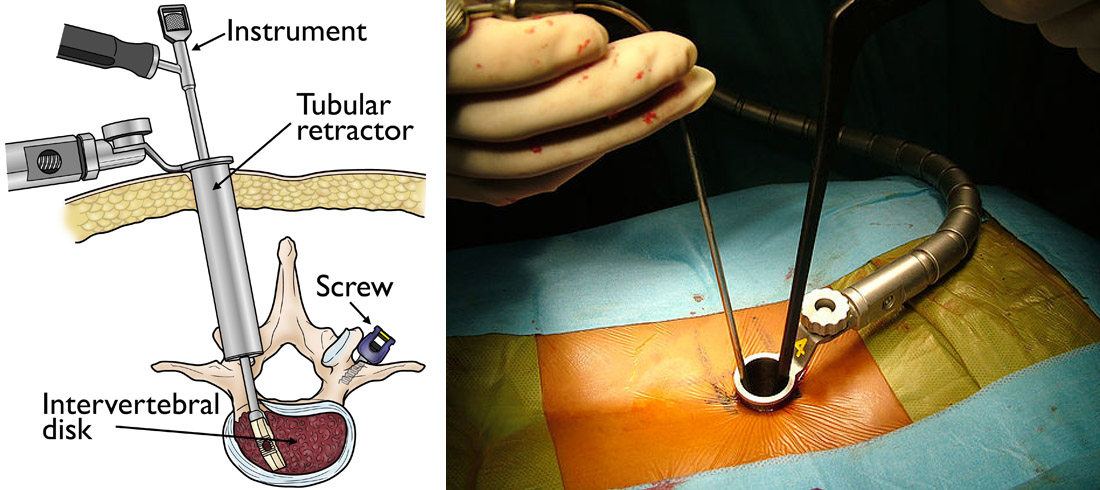What is Minimally Invasive Spinal Surgery (MISS)?
Minimally Invasive Spinal Surgery (MISS) is a modern surgical approach that uses small incisions and advanced tools to treat spinal conditions. Unlike traditional open surgery, MISS minimizes damage to surrounding muscles and tissues, leading to faster recovery and less post-operative pain.
MISS is used to treat a range of spinal conditions, including herniated discs, spinal stenosis, scoliosis, and degenerative disc disease.
Key Advantages of MISS:
- Smaller incisions and scars
- Faster recovery times
- Reduced pain and blood loss
- Shorter hospital stays
- Minimal disruption to surrounding tissues
Why Choose India for Minimally Invasive Spinal Surgery?
India is a top destination for spine surgery due to its world-class healthcare facilities, expert spine surgeons, and affordable treatment options.
Key Benefits of Choosing India for MISS:
- Cost-Effective Treatment: Save up to 70% on medical expenses compared to Western countries.
- Highly Skilled Surgeons: Spine specialists with extensive experience in MISS techniques.
- State-of-the-Art Hospitals: Equipped with advanced robotic and imaging technologies.
- Comprehensive Support: End-to-end assistance for international patients.
Conditions Treated with Minimally Invasive Spinal Surgery
- Herniated Discs: Removal of the damaged disc causing nerve compression.
- Spinal Stenosis: Widening of the spinal canal to relieve nerve pressure.
- Scoliosis: Correction of abnormal spinal curvature.
- Degenerative Disc Disease: Removal or repair of worn-out spinal discs.
- Spinal Tumors: Removal of tumors affecting the spine or spinal cord.
- Fractures and Instabilities: Repair of spinal fractures caused by trauma or osteoporosis.
Types of Minimally Invasive Spinal Surgery
- Microdiscectomy: Removes herniated disc material pressing on nerves.
- Spinal Fusion: Joins two or more vertebrae to stabilize the spine.
- Laminectomy: Removes part of the vertebra to relieve pressure on the spinal cord.
- Vertebroplasty/Kyphoplasty: Repairs spinal fractures with bone cement.
- Artificial Disc Replacement: Replaces a damaged disc with an artificial one to maintain mobility.
Symptoms That Indicate the Need for Spinal Surgery
Patients who experience the following symptoms may require spinal surgery after a thorough diagnosis:
- Chronic Back or Neck Pain: Pain that doesn’t improve with medication or physical therapy.
- Radiating Pain: Pain traveling to the arms, legs, or buttocks due to nerve compression.
- Numbness or Tingling: Loss of sensation in the extremities, often caused by nerve issues.
- Weakness in Limbs: Difficulty lifting objects or walking due to reduced motor control.
- Loss of Bowel or Bladder Control: Indicates severe nerve compression and requires urgent medical attention.
- Difficulty Standing or Walking: Persistent issues with mobility or posture.
- Scoliosis or Spinal Deformity: Abnormal spinal curvature leading to discomfort or visible misalignment.
- Severe Spinal Injuries: Trauma that results in fractures or instability in the spine.
The Minimally Invasive Spinal Surgery Procedure
MISS involves smaller incisions and specialized tools to access the spine with minimal disruption. Here’s an overview of the procedure:
- Pre-Surgical Assessment:
- Imaging tests (MRI, CT scans) to pinpoint the affected area.
- Discussion with the surgeon to choose the best treatment approach.
- During Surgery:
- Small incisions (less than 1 inch) are made.
- A tubular retractor or endoscope is used to access the spine.
- The surgeon performs the necessary procedure (e.g., discectomy, fusion).
- Closing the Incision:
- The small incision is closed with sutures or adhesive strips.
- Post-Surgery Recovery:
- Patients are usually discharged within 1–2 days.
- Rehabilitation begins shortly after surgery to regain mobility and strength.
Benefits of Minimally Invasive Spinal Surgery
- Reduced Pain and Scarring: Smaller incisions mean less trauma to surrounding tissues.
- Shorter Recovery Time: Patients often return to normal activities within weeks.
- Lower Risk of Complications: Less blood loss and reduced risk of infection.
- Improved Outcomes: High success rates with improved patient mobility and reduced pain.
Why Choose Healtour Solutions for MISS?
Healtour Solutions connects you with India’s top hospitals and spine surgeons for advanced, minimally invasive spinal surgery.
Our Services Include:
- Expert Consultation: Personalized treatment plans from leading spine specialists.
- Affordable Packages: Transparent pricing for all procedures.
- World-Class Hospitals: Access to top-rated medical facilities across India.
- Seamless Support: Visa assistance, travel arrangements, and post-operative care.
Post-Surgery Recovery and Care
- Hospital Stay: Most patients are discharged within 1–2 days.
- Rehabilitation Therapy: Physical therapy helps improve mobility and strengthen the spine.
- Follow-Up Care: Regular check-ups ensure a smooth recovery process.
- Lifestyle Changes: Avoid heavy lifting, maintain a healthy weight, and follow doctor’s instructions.
Frequently Asked Questions (FAQs)
- What is minimally invasive spinal surgery?
It’s a technique that uses small incisions and advanced tools to treat spinal conditions with minimal damage to surrounding tissues. - Who is a candidate for MISS?
Patients with conditions like herniated discs, spinal stenosis, or scoliosis may qualify. - How long does the procedure take?
Most MISS procedures take 1–2 hours, depending on the condition being treated. - Is MISS safe?
Yes, it’s a highly safe and effective technique with lower risks compared to traditional surgery. - What is the recovery time for MISS?
Recovery typically takes 4–6 weeks, with many patients resuming normal activities within a few days. - What are the risks of MISS?
While rare, risks include infection, bleeding, or nerve injury. - How much does MISS cost in India?
The cost ranges from ₹1,50,000 to ₹6,00,000, depending on the procedure. - Will I need rehabilitation after MISS?
Yes, physical therapy helps ensure a faster and more complete recovery. - Why is MISS better than traditional spine surgery?
MISS offers smaller incisions, less pain, faster recovery, and minimal scarring. - How can Healtour Solutions help with my surgery?
We provide complete support, from finding the best surgeons to managing travel and aftercare.






